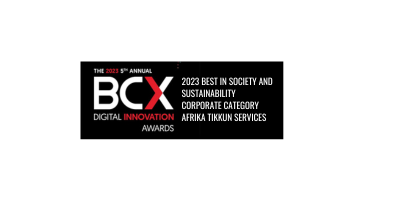South Africa is a developing nation fraught with staggering social, economic, and political challenges. Many challenges plaguing our nation have a direct, negative, and often debilitating effect/impact on our youth. According to research, a fifth of the global population is under the age of 25 and resides in sub-Saharan Africa. Sub-Saharan Africa is considered the youngest continent with its high youthful population. In an ideal world, the latter is an indispensable asset. In South Africa, however, the reality on the ground is contrary to this ideal.
While indeed the minds and potential of our youth are indispensable assets determining the collective success of our future, they need to be honed and aptly equipped. To ensure that our youth reach their full future potential, we need to nourish their minds, potential, and environment. When we take a microscopic look at the status quo of most South African households, many are living below the poverty line and food security is a seemingly obscure certainty for many.
According to Statistics South Africa (Stats SA), as of September 2021, the poverty line was at R624 per person per month. This amount was up by 6,7% from R585 previously. By definition, the poverty line is the minimum amount of money a person needs to fulfil the necessities of life, like shelter and food. When families are below the poverty line, they qualify for social assistance from the government. The government’s social assistance programme is an important lever in the government’s strategy to tackle poverty and inequality. It is estimated that 13,8 million people live below the food poverty line, which is commonly referred to as the ‘extreme’ poverty line.
To breach the disparaging and ever-widening socio-economic gap, austere and concrete measures ought to be implemented. As a constitutional democratic dispensation, South Africa boasts a bouquet of progressive policies and instruments for Socio-economic Development (SED). Conversely, to the detriment of our youth, they are more aesthetic than functional. In other words, our policies look better on paper and, in essence, do not translate into meaningful and tangible outcomes for the people on the proverbial ground.
The question, therefore, remains: how does the private sector, corporates, businesses, and government become a unified choir, and sing from the same hymnbook? How do all the relevant stakeholders ensure that SED makes a palpable impact at a grassroots level, benefitting those impoverished and under-resourced communities?
As one of the vital elements of the Broad-Based Black Economic Empowerment (B-BBEE) elements, SED is meant to capacitate disadvantaged people and connect them with the real economy. It is about investing in initiatives that build and transform. Quality education is one of the foremost critical interventions to foster real societal and economic transformation. It is a substantial imperative for South Africa.
SED initiatives should also pivot and concentrate on two focus areas, transferable skills and enabling access to the workplace. Imparting transferable skills ensures that beneficiaries have a lasting economic value to the economy. Enabling beneficiaries to access the workplace allows them to gain experience and become a valuable assets to the economy.
As a Level-1 B-BBEE advisory, recruitment, training, and placement company, Afrika Tikkun Services (ATS) provides B-BBEE advisory services and skills training. As such, these services support clients with achieving full integration of youth employment and placement solutions. ATS works across all five elements of B-BBEE namely: ownership, management control, skills development, enterprise and supplier development, and socio-economic development. ATS firmly believes that young people deserve the opportunity to realise their fullest potential. Moreover, it is focused on fulfilling the career, skills development, and placement mandate of the Afrika Tikkun Cradle to Career 360º model. Our award-winning model enables the economic empowerment of South Africa’s youth.
In essence, ours is to uplift and lend a much-needed helping hand to those who are seemingly helpless and to restore hope whilst forging impactful and sustainable change. By investing in our youth today, we harness and unlock the power of their potential and future success.


